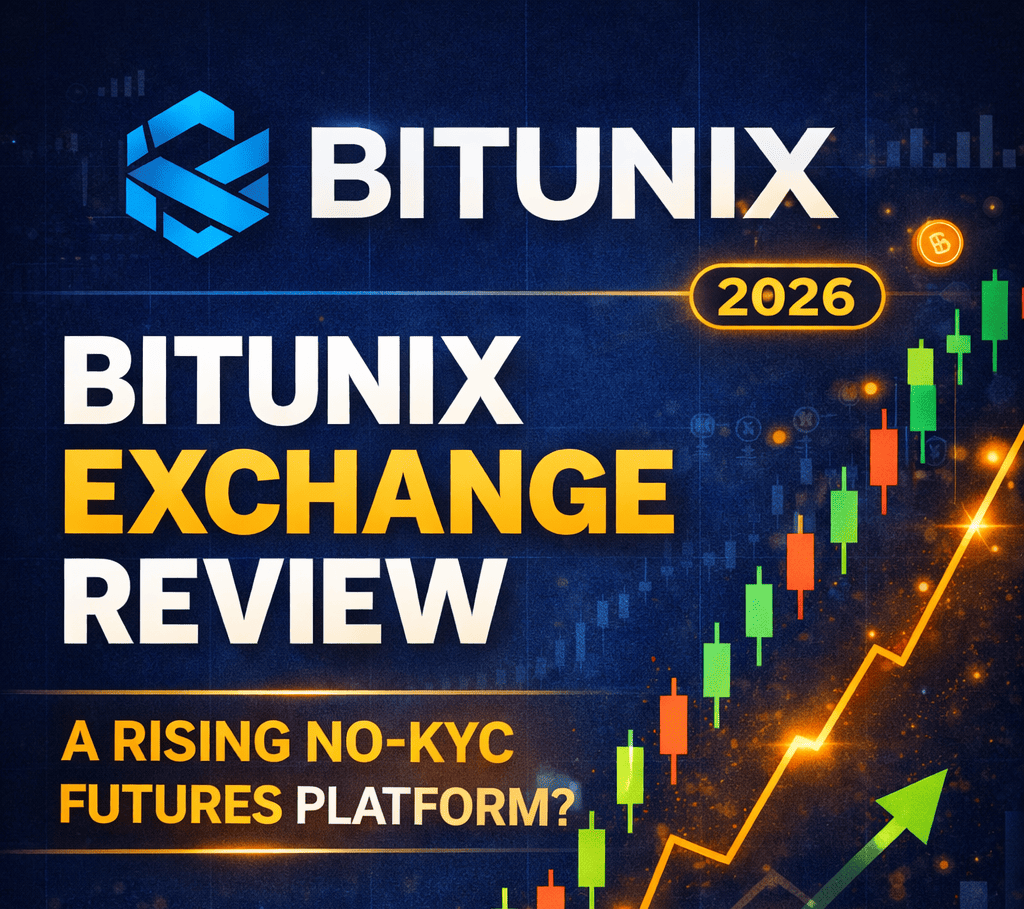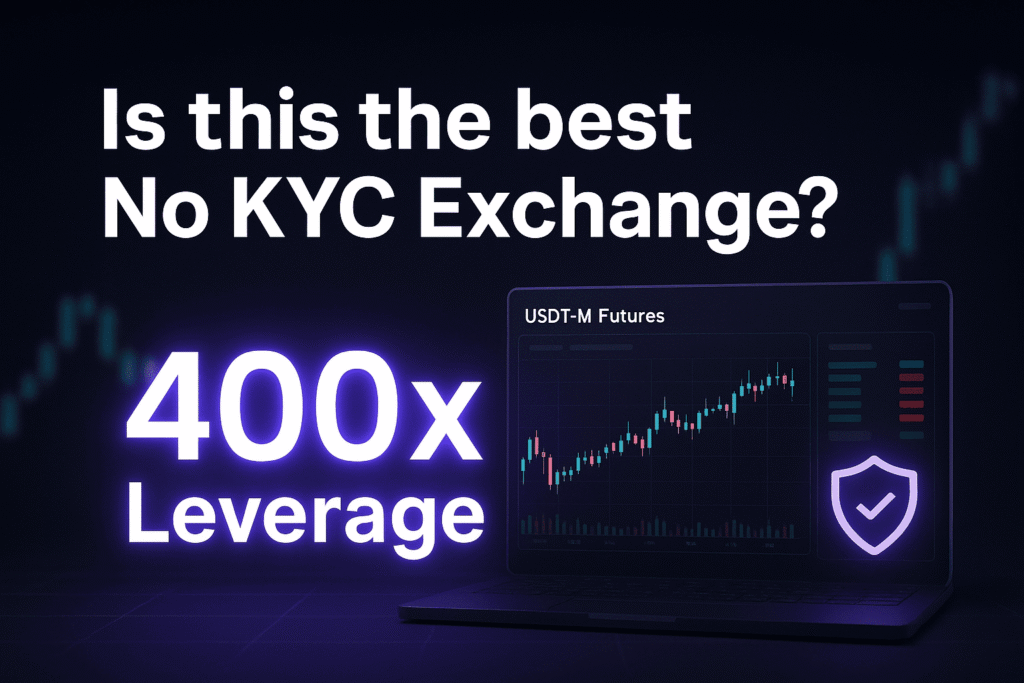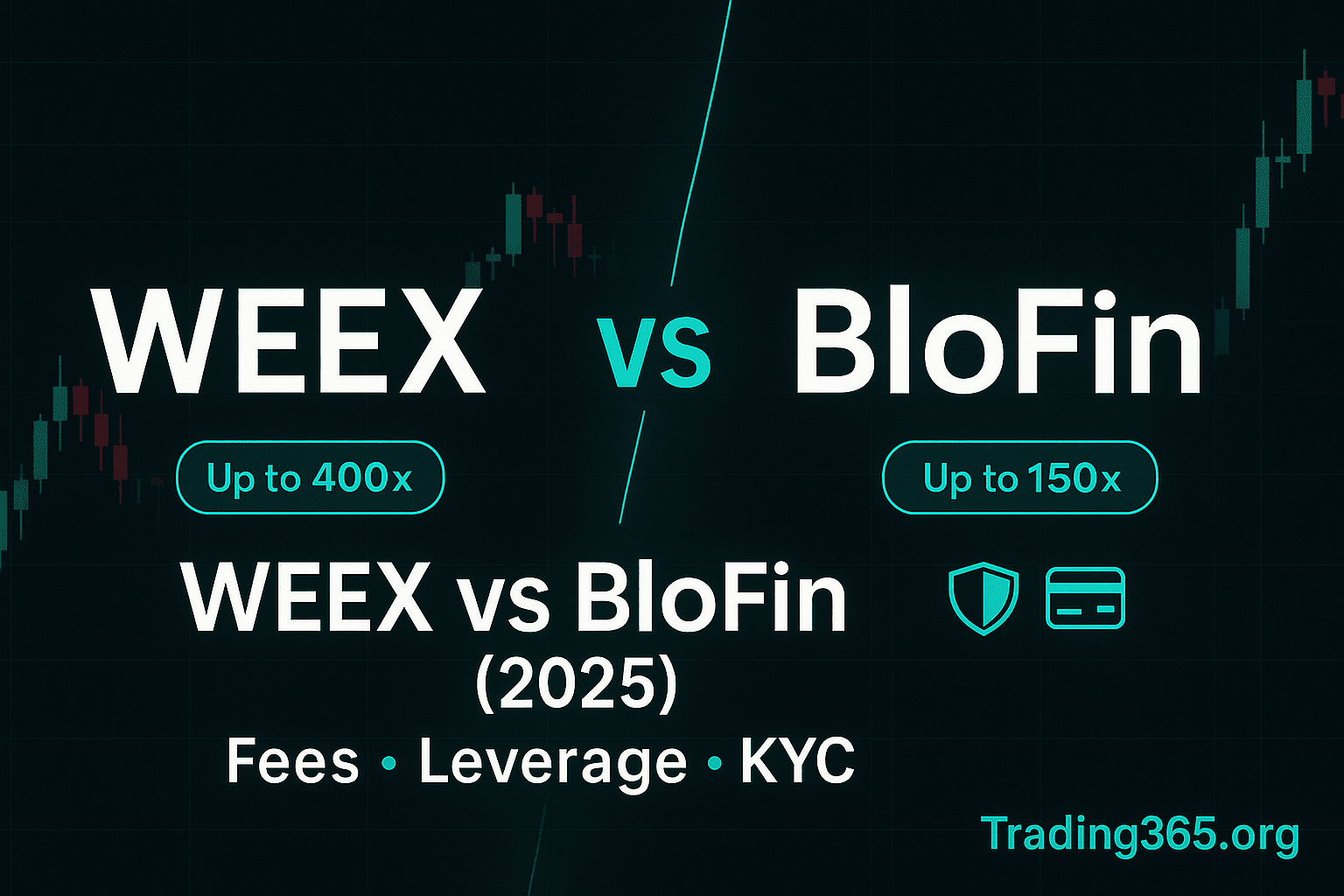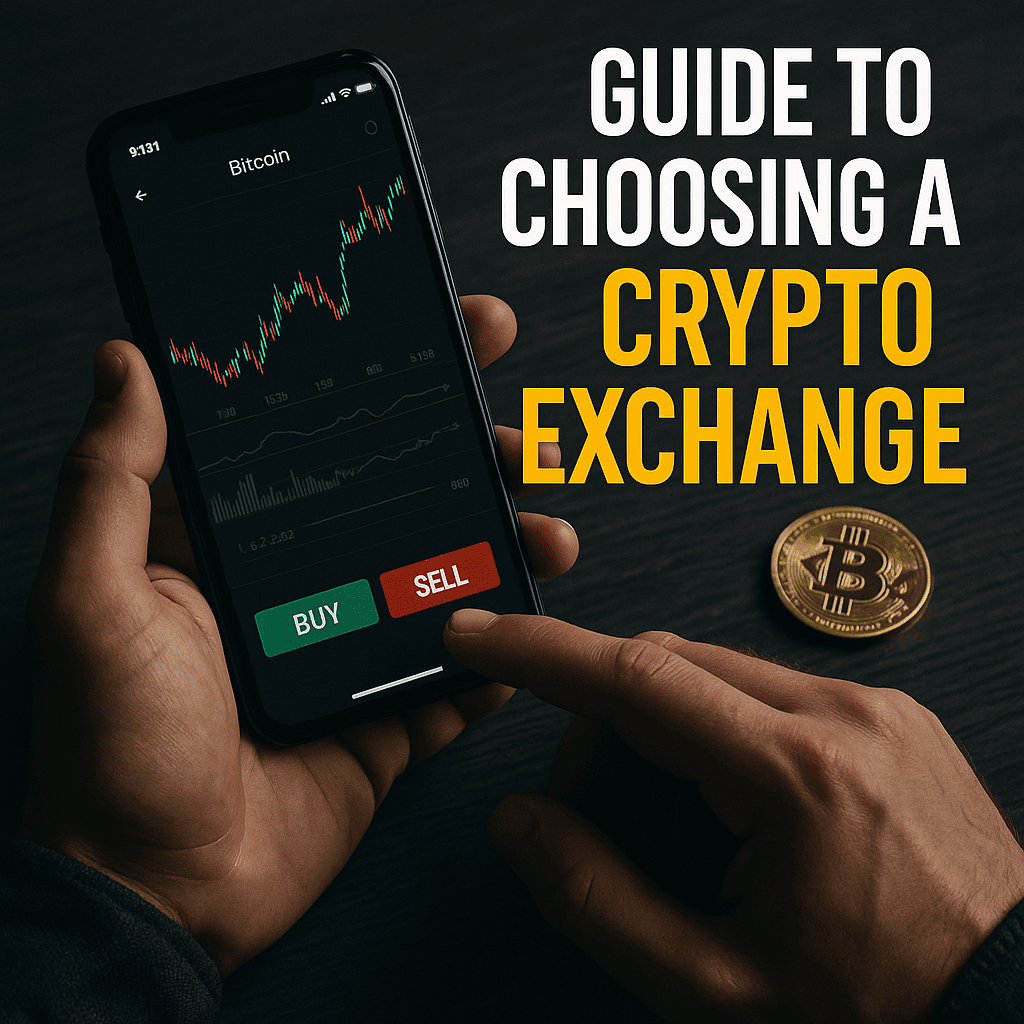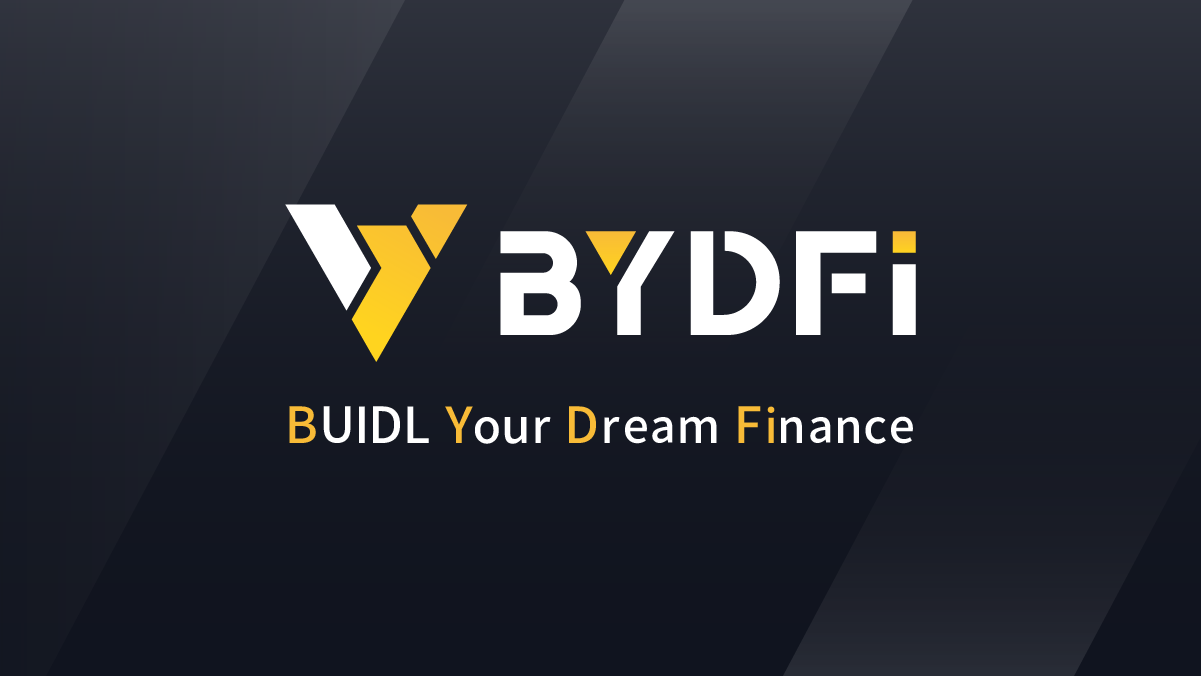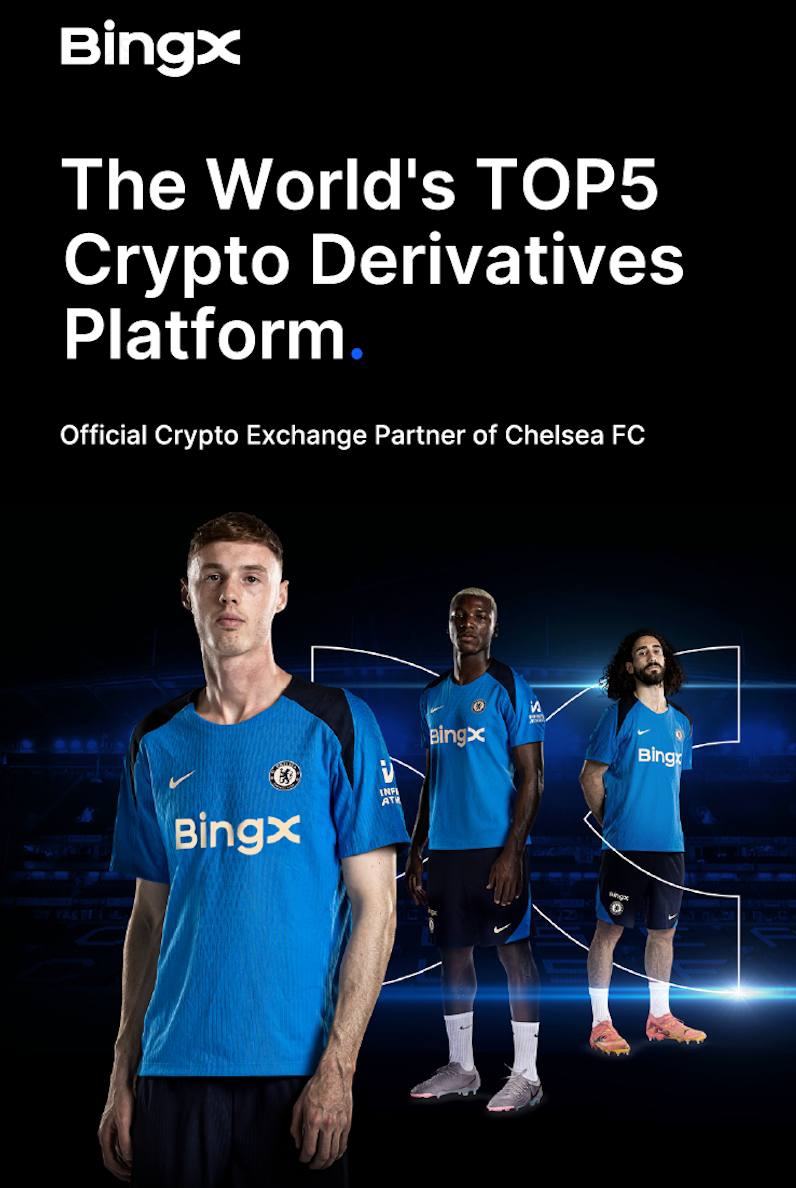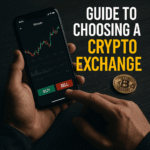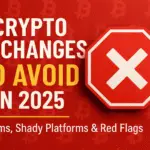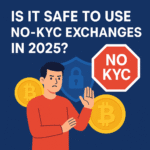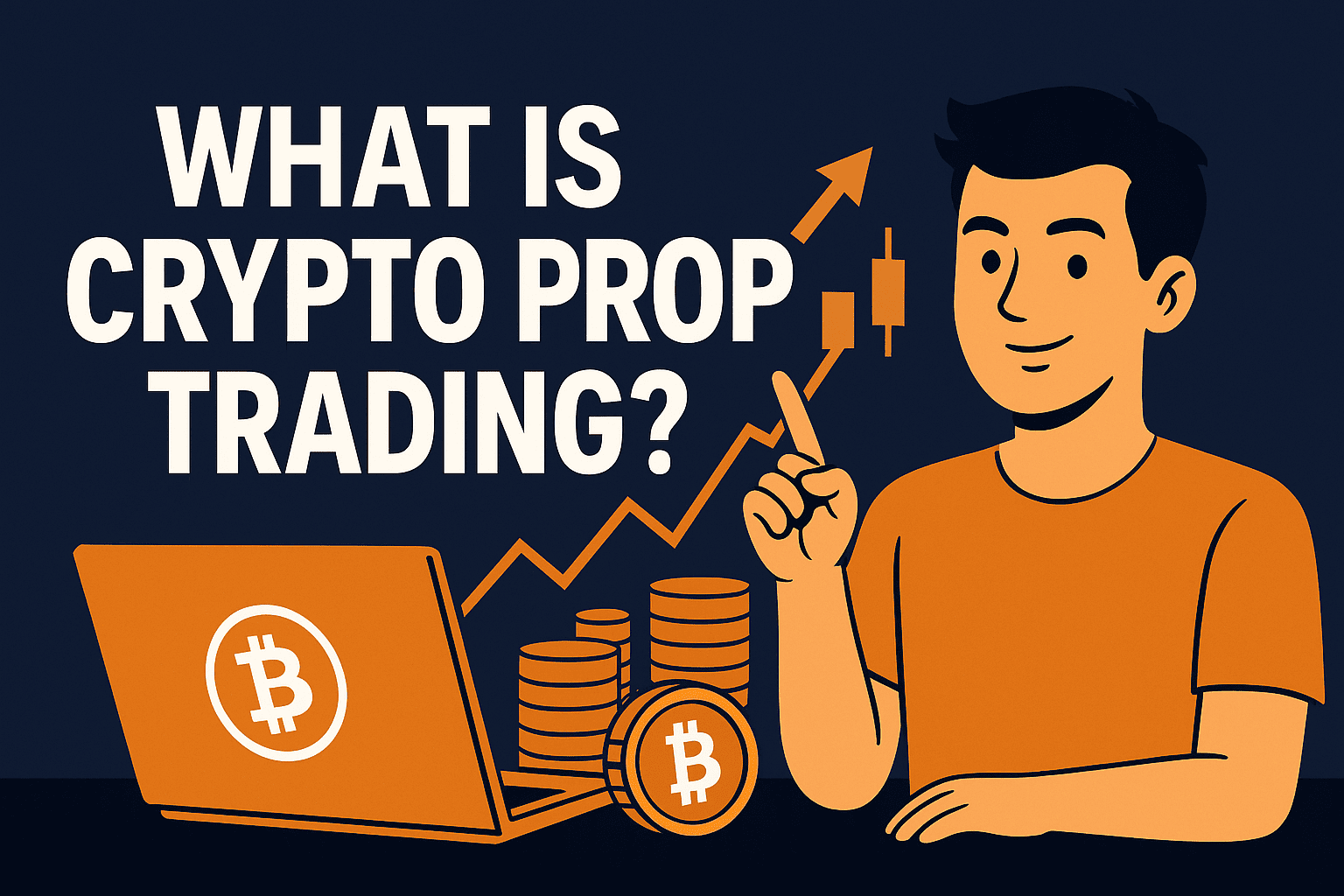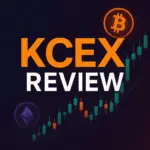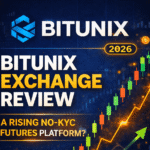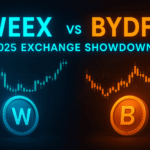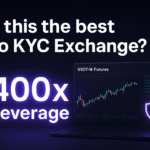Now Reading: Is It Safe to Use No-KYC Exchanges in 2025?
-
01
Is It Safe to Use No-KYC Exchanges in 2025?
Is It Safe to Use No-KYC Exchanges in 2025?
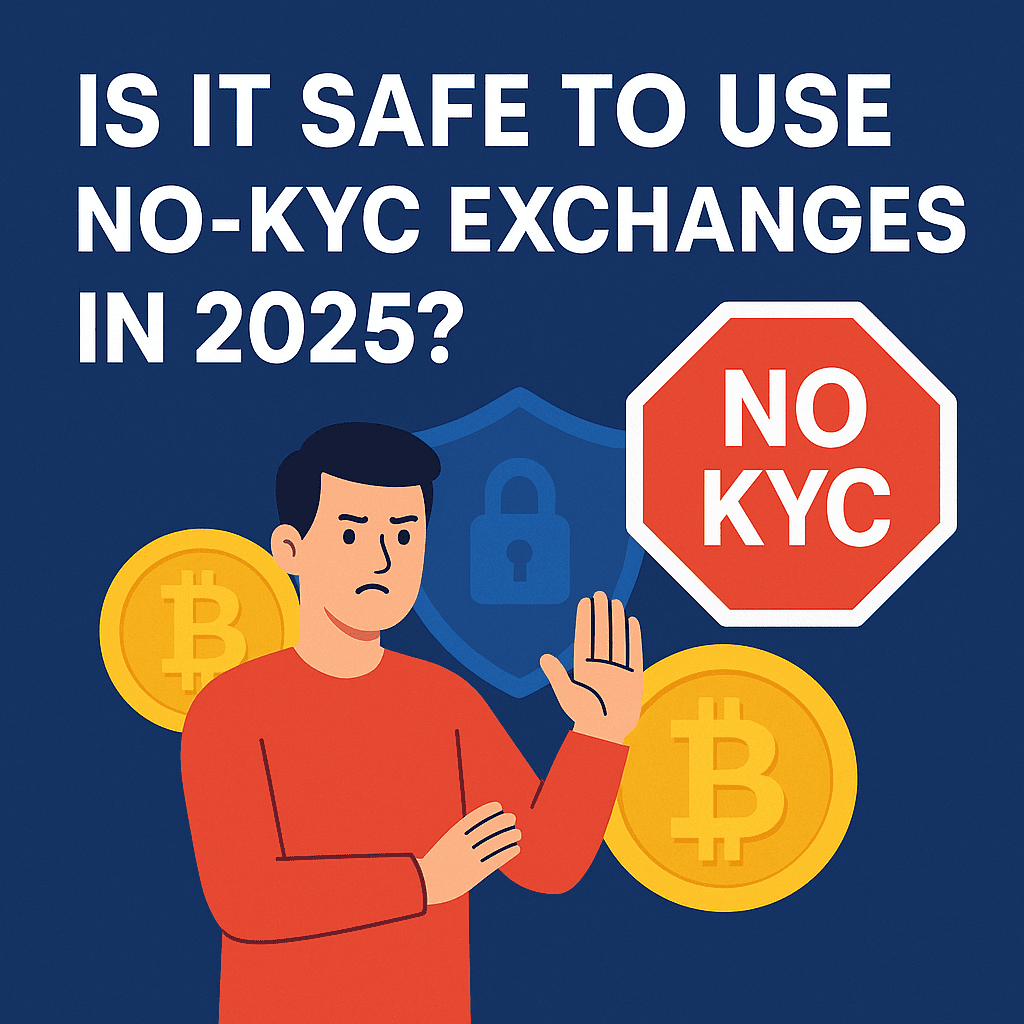
Introduction
In crypto, the choice of exchange defines your experience. Most large exchanges today require Know Your Customer (KYC) verification — submitting your passport, proof of address, even a selfie — before you can trade or withdraw.
But not every trader wants that level of surveillance. Some value privacy and speed, others live in countries where verification is slow or impossible. That’s where no-KYC exchanges step in.
These platforms let you sign up with just an email address and trade immediately. In 2025, no-KYC exchanges are becoming more popular, but the big question remains: are they safe to use?
✅ Why Traders Choose No-KYC Exchanges
There are several reasons people continue to flock to non-KYC exchanges, even as regulation tightens:
- Privacy & Anonymity → No-KYC exchanges allow you to trade without handing over sensitive documents. For privacy-focused users, this is the biggest benefit.
- Faster Access → With no ID checks, you can sign up and start trading in minutes. This is crucial during volatile markets when every second counts.
- Global Availability → Traders from countries with strict financial systems or weak banking access can trade freely.
- Lower Barriers to Entry → No waiting, no rejection, no bureaucracy. Just deposit crypto and trade.
- Big Bonus Incentives → Many no-KYC platforms attract users with generous sign-up rewards, trading competitions, and referral programs.
⚠️ The Risks of No-KYC Exchanges
With the benefits come real risks. Here’s what you need to watch out for:
- Regulatory Risks → Many no-KYC exchanges face pressure from regulators. If they get banned or geo-blocked, your access could vanish overnight.
- Restricted Features → Some no-KYC platforms limit withdrawal amounts or lock advanced features until KYC is completed.
- Trust Issues → Without regulatory oversight, the burden is on you to trust the platform’s management, reserves, and security.
- Limited Fiat Support → Depositing/withdrawing in USD, EUR, or GBP is rare on no-KYC exchanges. They are usually crypto-only.
- Higher Security Responsibility → You have to be extra cautious with passwords, 2FA, and withdrawals.
🏆 The Safest No-KYC Exchanges in 2025
While some platforms are shady, others have proven themselves with strong communities, audits, and proof-of-reserves.
| Exchange | KYC Policy | U.S. Allowed | Key Features | Bonuses (2025) | Review |
|---|---|---|---|---|---|
| Bitunix | Optional | ❌ No | Spot & Futures, low fees | Up to $500 bonus | Read Review |
| Toobit | Optional | ❌ No | 100x Futures, VIP Pass | Up to $5,000 rewards | Read Review |
| BYDFI | Optional | ❌ No | Copy trading, mobile app | Up to $8,100 bonus | Read Review |
| Blofin | Optional | ❌ No | Derivatives, pro tools | Up to $30,000 rewards | Read Review |
👉 For deeper breakdowns, see our full Best Crypto Exchanges 2025 Guide.
🔍 Who Should (and Shouldn’t) Use No-KYC Exchanges
✅ Good fit for:
- Traders who value privacy.
- People in countries where KYC is difficult.
- Short-term traders hunting bonuses.
- Users who don’t need fiat on/off ramps.
❌ Not ideal for:
- U.S. residents (geo-blocked).
- Long-term holders keeping large balances.
- Anyone who needs easy fiat deposits/withdrawals.
- Traders uncomfortable with extra risk.
📊 Case Study – The CRO/Trump Media Deal & Why KYC Matters
In 2025, Crypto.com launched a massive $6.4B CRO Treasury initiative with Trump Media. This was only possible because regulated, KYC-compliant structures allowed large-scale corporate and institutional involvement.
👉 This highlights the trade-off: KYC platforms get institutional legitimacy, while no-KYC platforms cater more to individual retail traders seeking privacy and speed.
🛡️ Safety Tips for Using No-KYC Exchanges
If you choose to trade on a no-KYC platform, follow these golden rules:
- Never Store Long-Term → Keep only what you actively trade. Store the rest on hardware wallets.
- Enable 2FA & Withdrawal Whitelists → Don’t rely on SMS; use Google Authenticator.
- Check Proof-of-Reserves → Use exchanges that publish transparent audits.
- Test First → Always test deposits/withdrawals before sending big amounts.
- Diversify → Don’t keep all your funds on one no-KYC platform.
📈 The Future of No-KYC Exchanges
The future is uncertain. As regulators increase pressure, some no-KYC exchanges may:
- Introduce partial KYC (higher withdrawals require ID).
- Relocate offshore to avoid compliance.
- Shut down entirely if forced by global regulations.
But one thing is clear: demand for private trading options will always exist. In 2025, privacy-focused platforms like Bitunix, BYDFI, and Toobit are filling that gap.
🎯 Conclusion
So, is it safe to use no-KYC exchanges in 2025?
👉 Yes — if you pick the right platform and follow strict safety practices.
- For privacy & quick trades → No-KYC is great.
- For regulation & fiat support → KYC exchanges like Coinbase or Kraken are safer.
- For most traders → The best approach is use no-KYC for bonuses and fast trades, but always self-custody your long-term holdings.
Check out our reviews of Bitunix, Toobit, BYDFI, and Blofin for exclusive bonuses only available through Trading365.
You can also find the complete list of sign up bonuses here.
📌 FAQ
Q: Are no-KYC exchanges legal in 2025?
A: Yes, but many block U.S. users and operate in gray areas depending on the country.
Q: Which no-KYC exchanges are the safest?
A: Bitunix, Toobit, BYDFI, and Blofin — all with proof-of-reserves and strong user bases.
Q: Can U.S. residents use no-KYC exchanges?
A: Not officially. Most are geo-blocked, though some users attempt VPN access (with risk).
Q: Should I keep funds on no-KYC exchanges long-term?
A: No. Use them for trading, but withdraw profits to a hardware wallet.
Q: Do no-KYC exchanges offer bonuses?
A: Yes — often bigger than KYC exchanges. BYDFI, Toobit, and Blofin currently have some of the best sign-up rewards.














